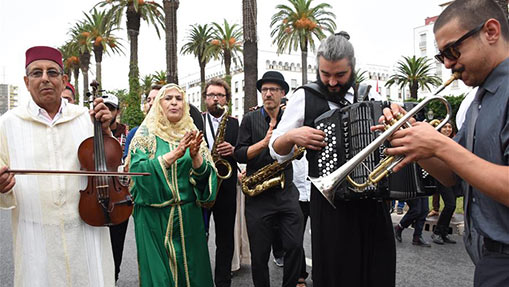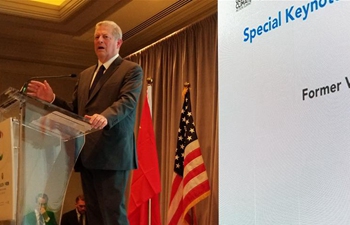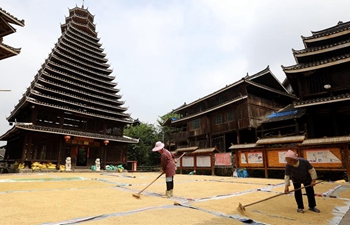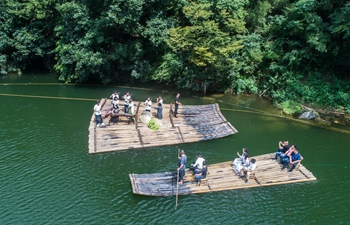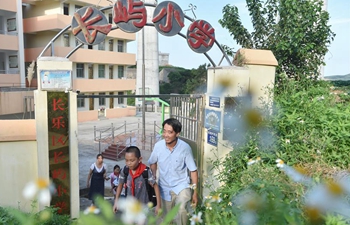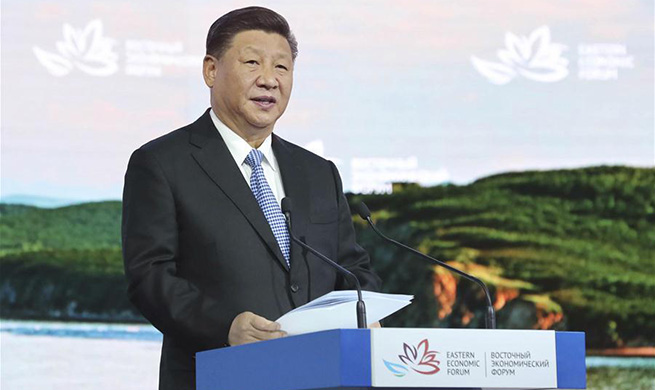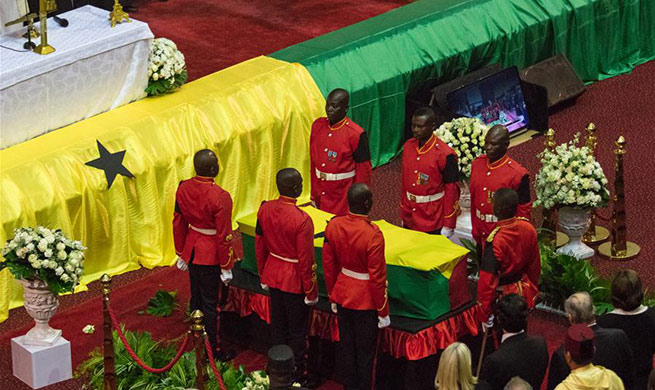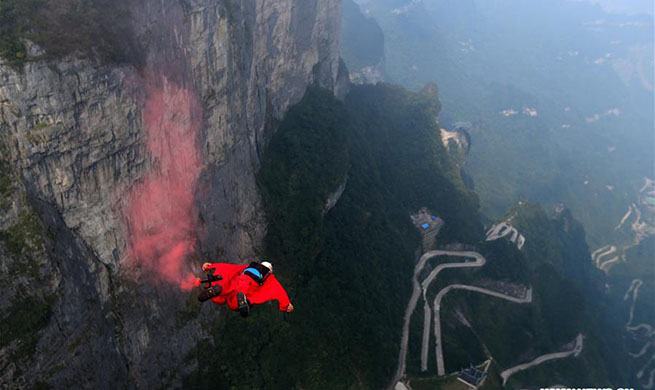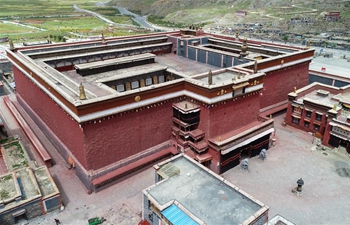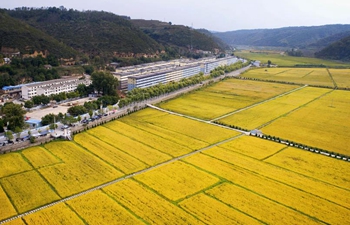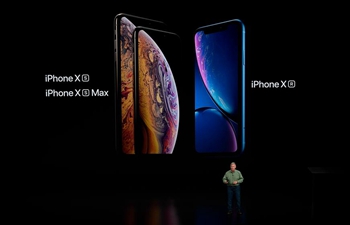by Jamila Najmuddin, Zhu Ruiqing
COLOMBO, Sept. 14 (Xinhua) -- When moving around Sri Lanka's capital Colombo, many tuk-tuk (auto rickshaw) drivers are seen carry a liquor bottle at their feet. Those who take on the tuk-tuk for the first time may wonder if the drivers are holding the wheel while taking a sip of alcohol from time to time.
These glass liquor bottles are actually filled with just water. Not only the tuk-tuk drivers, but also many Sri Lankans like to carry water in liquor bottles.
"Many people in Sri Lanka drink in the evenings. The bottle I am carrying water today is an imported one. I received it as a gift from my relative coming from overseas," 45-year-old tuk-tuk driver Kolitha told Xinhua.
Kolitha hails from southern city of Galle and lives in a rented room in Colombo, driving his tuk-tuk for a living. Once he is off work, he gathers with his friends and other tuk-tuk drivers for a "shot" of alcohol.
While the more expensive and imported brands can be found in supermarkets and pubs, in small wine stores on the streets, the cheapest alcohol can be bought for around Rs. 200 (some 1.2 U.S. dollars).
"If we keep only the expensive brand, the common folks will not come to us. We offer a 'variety,' and we never sell to youngsters," Kithsiri, owner of a wine shop in Colombo said.
Kithsiri has been running a wine shop for over 40 years. His shop is well protected behind the iron bars which is attached to the glass at the entrance.
Kithsiri sits behind the cash desk while his brother sells the alcohol. "The business has never been dull," Kithsiri said. "We have never suffered losses as all sales were strictly on cash basis. And the bars were installed to prevent thieves and trouble-makers."
According to World Health Organization statistics, the alcohol consumption per capita (over 15 years old) in Sri Lanka stands at 4.3 liters of pure alcohol every year.
The figure is low compared to some western countries. However, in Sri Lanka, 70 percent do not drink at all, which means the remaining 30 percent who drink are drinking a lot, Chairman of Sri Lanka's National Authority on Tobacco and Alcohol (NATA), Dr. Palitha Abeykoon told Xinhua.
A 35-year-old Indika De Silva (alias) is a frequent visitor at the Psychiatric clinic of a local hospital in Colombo. She has been receiving counselling for three months, with only one aim, to totally dry out.
Since her early 30s, De Silva started consuming alcohol every day. "At first I thought a drink a day could do me no harm. But very soon I got addicted to it and that's when the problems began," De Silva said.
De Silva said she had to leave her parents' home as her alcohol consumption had affected her relationship with them. Soon after, her relationship with her partner also ended as they would quarrel daily due to her "drinking problem."
"Within a year, my life fell apart. Today I have realized that I want a better life. I have been sober for three months now and visit the clinic weekly," she said.
A local doctor, who wished to be unnamed, said he counsels 20 people per week who suffer from excessive alcohol consumption. He said while some have become addicted due to problems in their personal lives, some have become addicted due to economic difficulties.
Alcoholism has become a social issue in Sri Lanka. Just as Pubudu Sumanasekara, executive director from Sri Lanka's Alcohol and Drug Prevention Center said, the economic costs of alcohol and tobacco has been affecting the country. In 2015, the economic cost of tobacco and alcohol stood at a staggering 1,548 million U.S. dollars.
According to Sumanasekara, in Sri Lanka, even a small village with around 300 families spend an average Rs. 400,000 ( 2,446 U.S. dollars) per month on alcohol and tobacco. "So, it is not that earnings are low in Sri Lanka. It is that they are spending their earnings on tobacco and alcohol," Sumanasekara said, adding that these are the two main factors that perpetuate poverty in the island.
However, Sumanasekara also pointed out that Sri Lanka had made great efforts in reducing the consumption of alcohol.
Under Sri Lanka's NATA act, advertising for alcohol in print, electronic or digital media was totally banned. In addition, vending machines selling alcohol and tobacco was also banned in the country.
What's more, a kind of illicit alcohol made from the sap of coconut or palm trees, once enslaved many Sri Lankans, especially the poor masses. Today, frequent raids by the police have helped curb the situation and the sale of illicit liquor has almost disappeared.
"Even today, the NATA Act is one of the best Acts in the world to prevent children and youngsters from drinking and smoking. However, loopholes exist and we are working on bridging those gaps. There is a lot more that needs to be done," Sumanasekara said.
